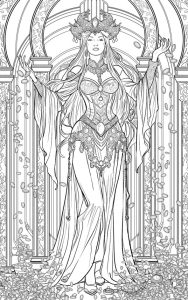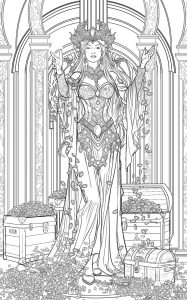Avarice or greed, considered one of the seven deadly sins in Christianity and with parallels in other religions, is universally seen as an intense desire to accumulate wealth and material goods beyond basic needs, often at the expense of the well-being of others and oneself.
Different religious traditions interpret and teach about avarice:
- Christianity In Christianity, avarice (also known as greed) is considered a grave sin because it involves an inordinate love for wealth and earthly goods, which can divert believers from love of God and neighbour. The Bible has numerous references warning against greed, such as in the Gospels where Jesus warns that ‘you cannot serve both God and money’ (Matthew 6:24)
- Judaism Judaism teaches against avarice through laws and ethics about justice and charity. In the Talmud and other rabbinic texts, the importance of being generous and avoiding avarice is emphasised. Biblical stories and laws such as the Sabbatical and Jubilee rules (which mandate the cancellation of debts and redistribution of land) show a commitment to moderation and economic justice.
- Islam Islam also discourages avarice, known as ‘Shuhh’. The Qur’an often criticises those who are greedy and those who accumulate wealth without recognising the rights of the poor and needy. The act of giving ‘Zakat’ (obligatory alms), which is one of the five pillars of Islam, is promoted as a means of purifying a person’s wealth and combating personal avarice.
- Buddhism Although Buddhism does not have a direct concept of sin as in the Abrahamic religions, it identifies avarice as one of the three roots of evil, along with hatred and delusion. It is seen as a form of ‘tanha’, or burning desire, which engenders suffering and reincarnation. Buddhist practice focuses much on overcoming greed through meditation and the development of non-attachment and compassion for all beings.
Avarice is a sin that encapsulates the danger of allowing material desires to dominate our existence, obscuring higher values essential for a full and meaningful life. Its study and understanding is crucial to any analysis of human failings and their impact on society and the individual.
This design has been handmade (not AI) by the Asturmint project team, this has been the design process:






















